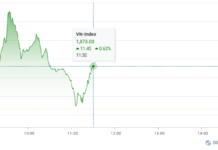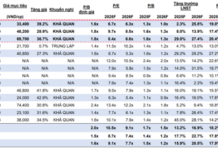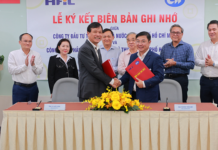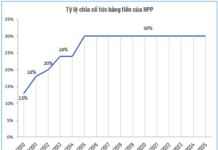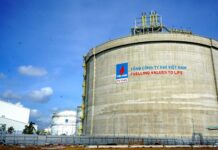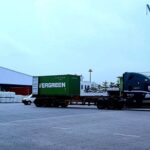Vietnamese logistics businesses have embarked on a green transition journey, adopting cost-saving transport methods and increasingly embracing environmentally friendly vehicles, solar-powered warehouses, and other emission-reducing measures.
BARRIERS TO GOING GREEN
However, according to the Ministry of Industry and Trade, only a small fraction of the country’s tens of thousands of logistics companies have embraced this green transformation. Widespread adoption of green logistics practices faces several challenges, including technical and technological barriers, investment cost issues, limited awareness among businesses, and a lack of synchronized logistics infrastructure.
Additionally, the understanding of green logistics requirements among businesses, particularly small and medium-sized enterprises, is quite limited. This is coupled with technological constraints, as optimizing the supply chain through information technology demands advanced skills and cutting-edge technology, which not all businesses can afford to invest in.
At a seminar on “Adapting Green Logistics – Solutions to Support Businesses” held on September 9, Dr. Tran Thi Thu Huong, Head of the Logistics and Supply Chain Management Department at the University of Commerce, pointed out that out of over 34,000 logistics companies in Vietnam, most play a peripheral role in the global logistics chain.
According to Huong, the primary challenge for logistics businesses in going green is market pressure. In the initial stages, green practices will likely entail significant investment costs. Since most logistics companies are small or medium-sized, this poses a challenge when it comes to making investment decisions to become more environmentally friendly.
Furthermore, while Vietnam’s infrastructure has developed, it still falls short when it comes to meeting green requirements. For example, transitioning from road to inland waterway or rail transport, which have lower emissions, is quite limited.
From a business perspective, Mr. Mai Tran Thuat, CEO of Dong A Pharmaceutical Logistics Joint Stock Company, concurred that the primary challenge in implementing green logistics is the investment required for technology, eco-friendly packaging, and warehouses that utilize renewable energy to reduce greenhouse gas emissions and environmental pollution. These demands necessitate substantial financial resources, which many businesses lack.

“Currently, we operate a warehouse with approximately 10,000 pallets, incurring about 200 million VND in monthly electricity costs. Aside from the financial aspect, the amount of electricity we consume releases a significant amount of toxic emissions into the environment. Embracing green practices, such as installing rooftop solar panels, would significantly reduce costs and emissions, but the initial investment is quite high,” shared Thuat.
Moreover, businesses are not permitted to buy and sell surplus solar energy, hindering their ability to invest in such solutions. Regarding transportation, companies currently rely on refrigerated trucks, which consume 35-45% fuel, resulting in substantial carbon emissions. Businesses wish to adopt electric trucks, but none are currently available in Vietnam.
STRATEGIES FOR GREEN LOGISTICS DEVELOPMENT
To facilitate the transition to green logistics and meet the green demands of customers and the government’s orientations, Thuat emphasized the need to address investment challenges and macroeconomic policies. This includes providing tax and financial incentives and connecting businesses genuinely interested in investing in green logistics solutions. Additionally, policies should encourage immediate investment in green initiatives, such as the development of green industrial parks, the utilization of rooftop solar panels, and the adoption of electric trucks.
Notably, green logistics practices must be instilled within businesses. In other words, companies themselves must recognize the importance of going green and align their strategic business decisions accordingly.
Huong added that the green transformation should be led by company leaders. When top executives have a strong understanding of the green transition and a strategic vision for their company’s development, they will be more inclined to modify policies and allocate appropriate investments to support this shift.
From a regulatory perspective, Ms. Dang Hong Nhung, from the Department of Import and Export, Ministry of Industry and Trade, shared that the government’s current incentives focus on supporting logistics companies in transitioning to low-emission vehicles, primarily electric-powered transport.
Specifically, the government has introduced prominent policies, including a three-year exemption from registration fees for electric trucks powered by batteries and a 50% reduction in registration fees for the following two years.
Additionally, the Ministry of Industry and Trade offers projects to assist businesses, particularly small and medium-sized enterprises, in reducing their electricity consumption.
The Surplus Conundrum: Navigating the Tricky Terrain of Offsetting 6 Million Tons of CO2
The Ministry of Agriculture and Rural Development has reported to the Prime Minister on the transfer of nearly 6 million tons of surplus CO2 emission credits from the North Central Region for the period 2018-2019. The report emphasizes that these emission reductions were achieved in the past and their value will depreciate over time if not utilized promptly.
The Double Benefits of Eco-Industrial Parks
The eco-industrial park is a visionary concept that goes beyond cost-saving and emissions reduction. It offers investors a unique opportunity to deeply engage in the global value chain. By adopting sustainable practices, businesses can enhance their competitive advantage and create long-lasting value. This forward-thinking approach not only benefits the environment but also opens doors to new markets and collaborations, fostering innovation and growth.

